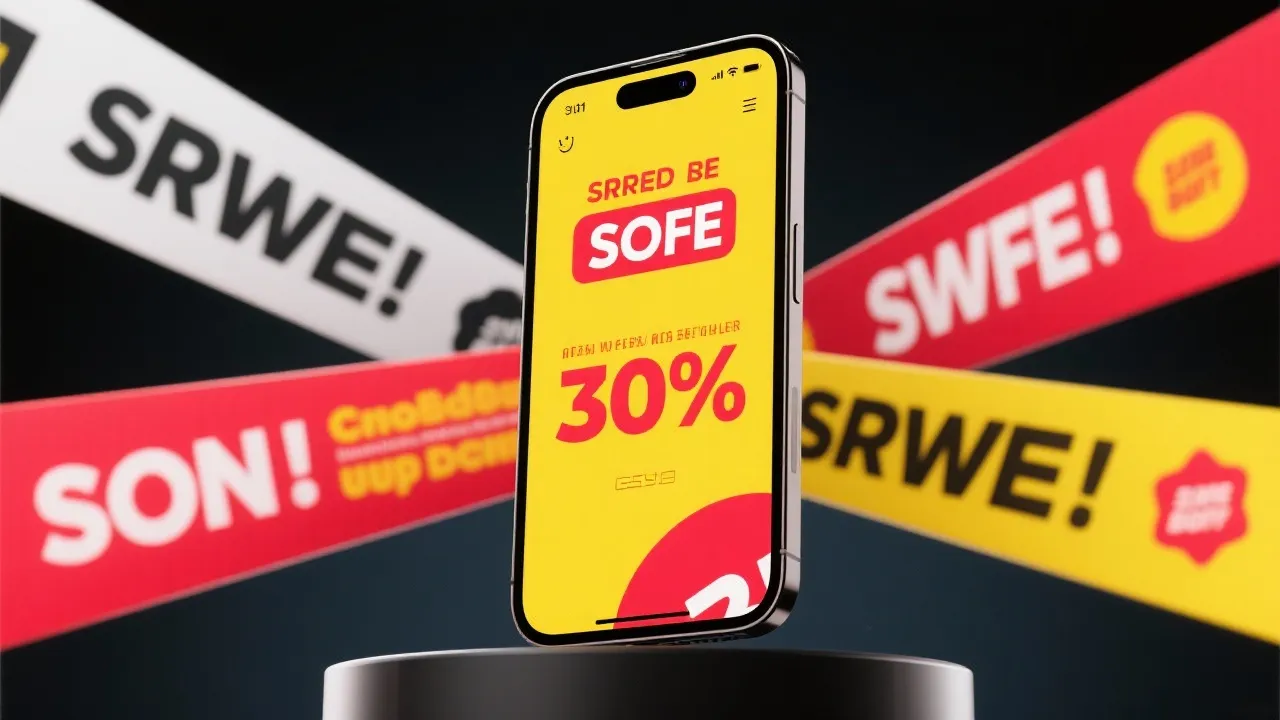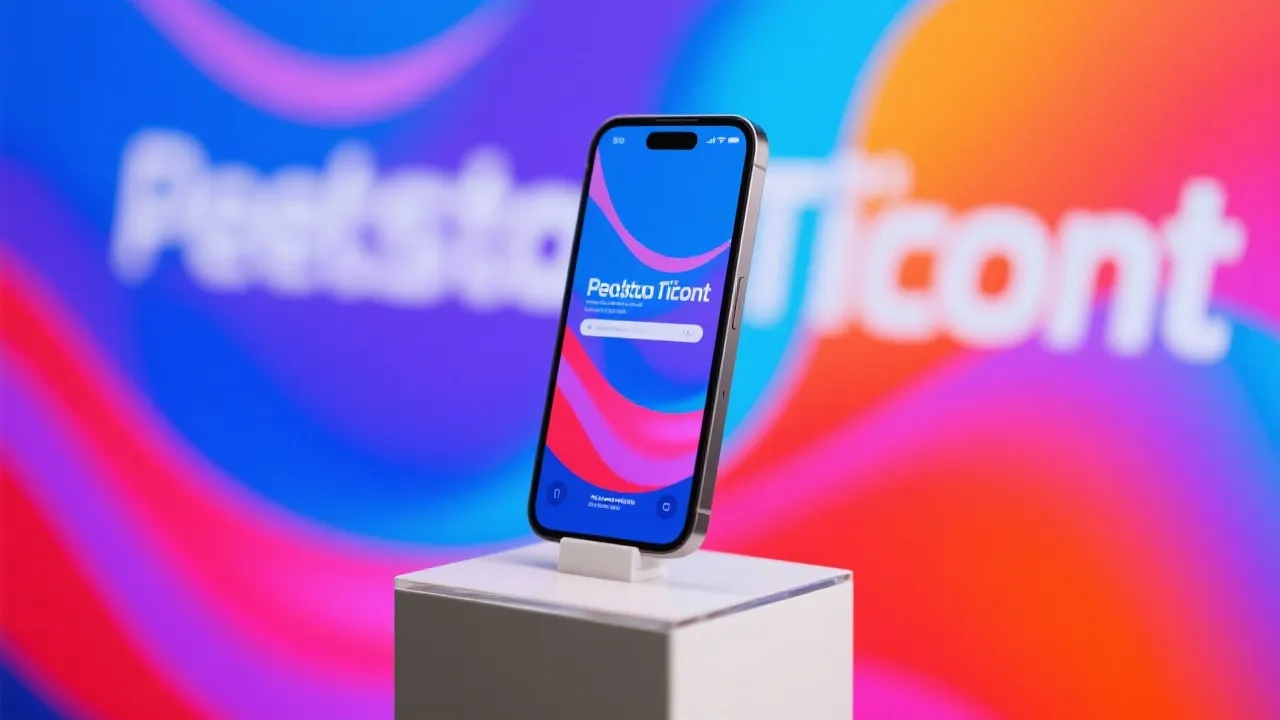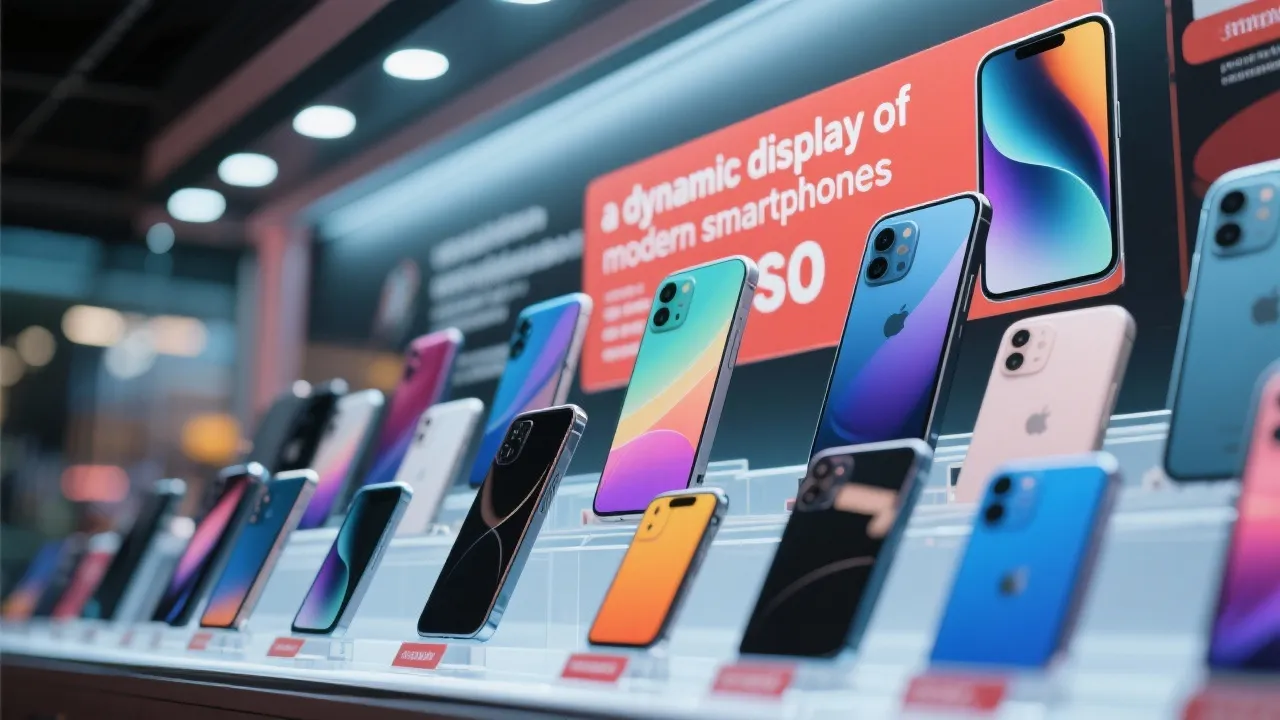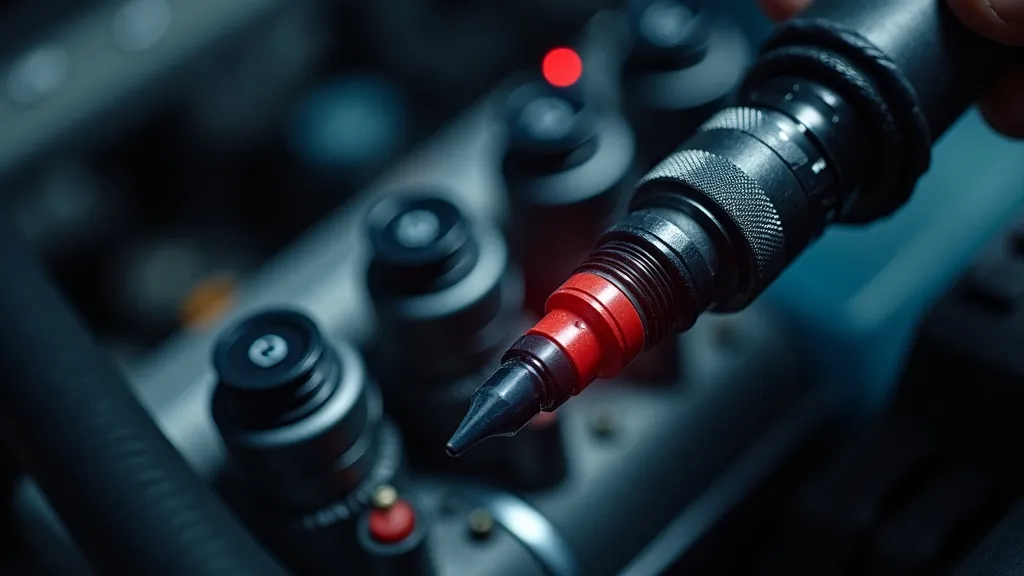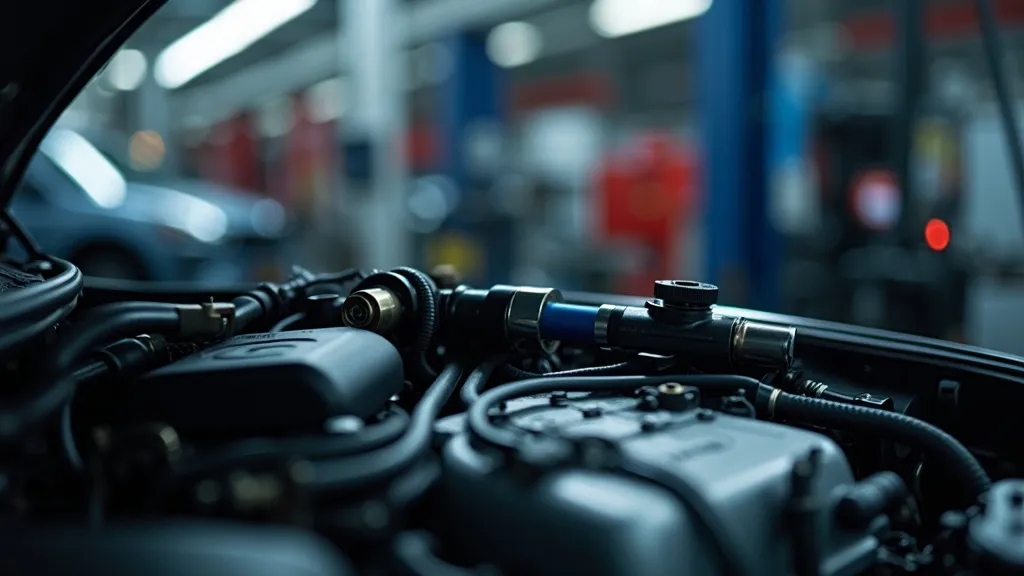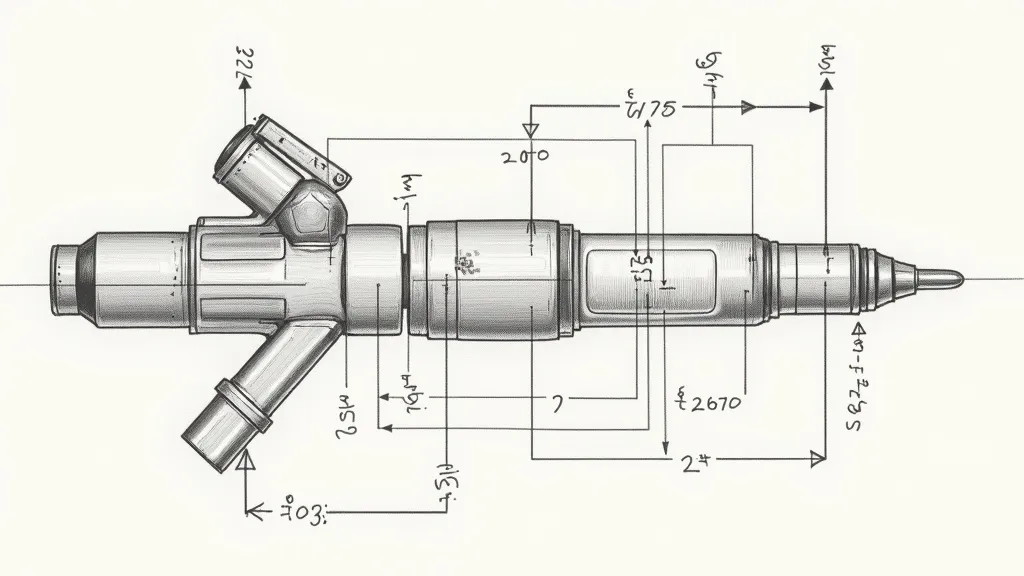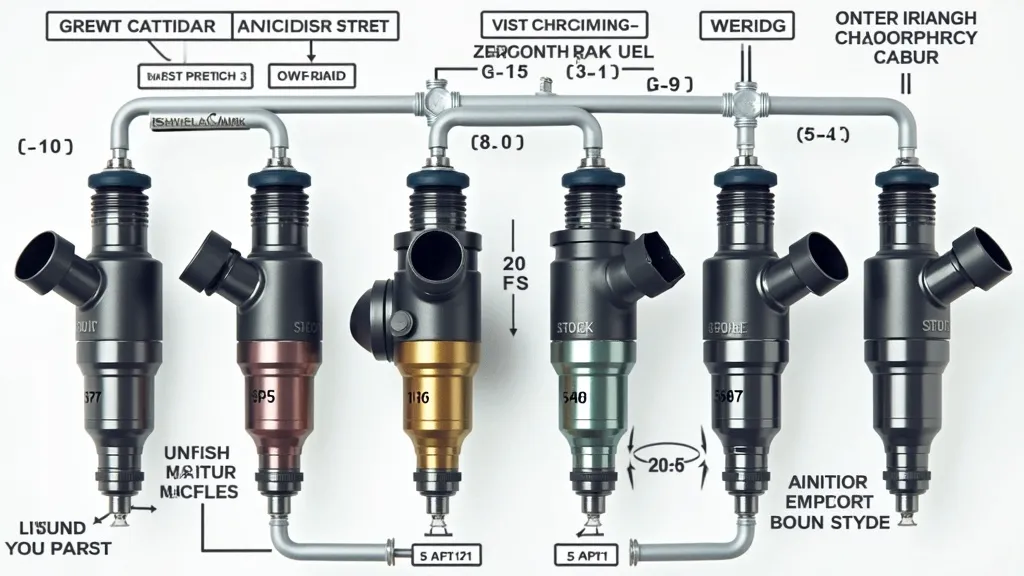Mastering Injector Calibration Techniques
This guide delves into the intricacies of Коррекция Форсунок, or injector calibration, offering insights into its importance for engine efficiency. Injector calibration ensures that fuel injectors deliver precise amounts of fuel into the engine, optimizing performance and reducing emissions. With advancements in automotive technology, understanding injector calibration has become crucial for maintaining vehicle performance.
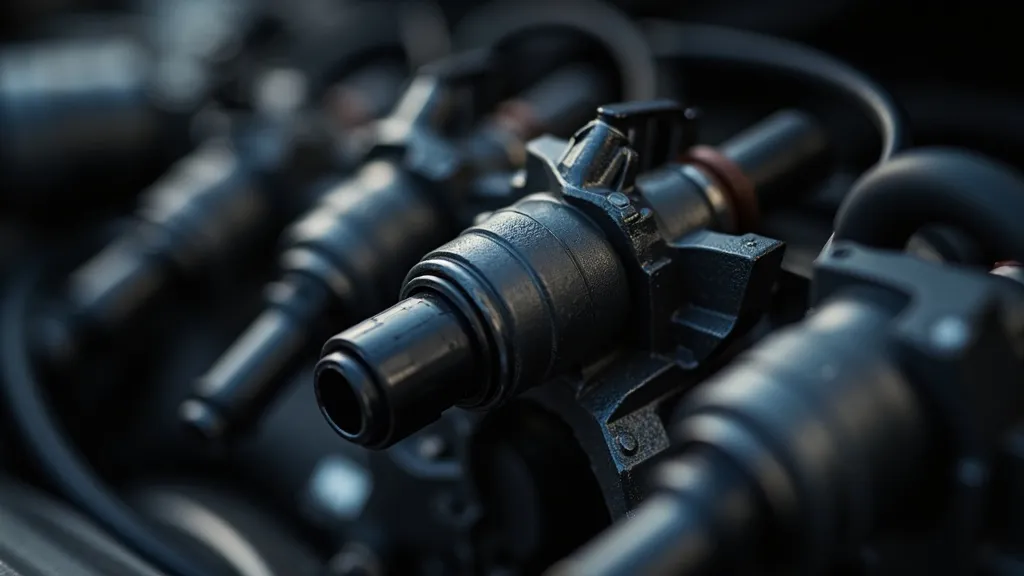
Understanding Коррекция Форсунок
Коррекция Форсунок, or injector calibration, is a critical process in automotive maintenance that ensures the optimal performance of a vehicle's engine. This procedure involves adjusting the fuel injectors to deliver the precise amount of fuel into the engine's combustion chamber. Proper calibration not only enhances the vehicle's efficiency but also reduces harmful emissions, making it both an economically and environmentally sound practice. The process of injector calibration is essential for maintaining the balance between performance and environmental responsibility.
The Importance of Injector Calibration
The performance and longevity of an engine are heavily dependent on the precise operation of its fuel injectors. Over time, injectors can become clogged or worn out, leading to inefficient fuel delivery and poor engine performance. Regular calibration of injectors ensures that the engine receives the correct air-fuel mixture, which is vital for achieving optimal combustion and power output. If fuel injectors are not functioning correctly, it can lead to a variety of issues, including reduced power, increased fuel consumption, and higher emissions. This not only affects the vehicle's performance but can also lead to costly repairs in the long run.
Moreover, with the advent of stricter emissions regulations worldwide, the significance of injector calibration has escalated. Vehicles equipped with properly calibrated injectors tend to produce fewer pollutants, contributing to a cleaner environment. This is particularly important in urban areas where air quality is a growing concern. Thus, maintaining and calibrating fuel injectors is not just a mechanical necessity but a social responsibility as well.
Steps in Injector Calibration
Injector calibration is a meticulous process that requires specialized equipment and expertise. Here is a step-by-step guide to understanding how it is typically performed:
- Diagnosis: The process begins with a thorough diagnostic check to identify any issues with the fuel injectors. Technicians use advanced diagnostic tools to read error codes and assess the performance of each injector. This initial step is crucial as it helps determine whether the injectors are functioning within their specified parameters.
- Cleaning: Injectors are cleaned using ultrasonic cleaning technology to remove any deposits or blockages. This cleaning process involves submerging the injectors in a special cleaning solution that vibrates at ultrasonic frequencies, effectively dislodging carbon buildup and other contaminants that may affect injector performance.
- Testing: After cleaning, injectors are tested for spray patterns and flow rates to ensure they meet the manufacturer's specifications. This testing is often performed using a flow bench, where injectors are subjected to various pressures to simulate operating conditions. The spray pattern is observed to confirm that the injector is atomizing fuel correctly, which is essential for efficient combustion.
- Adjustment: If discrepancies are found during testing, adjustments are made to calibrate the injectors accurately. This may involve adjusting the injector's timing, pressure, or pulse width to ensure that it delivers the right amount of fuel at the right time.
- Final Testing: A final test confirms that all injectors are operating efficiently before they are reinstalled in the engine. This step is vital to ensure that any adjustments made have resulted in improved performance and that the vehicle is ready for optimal operation.
Challenges and Solutions in Injector Calibration
Injector calibration can be challenging due to the precision required and the complexity of modern fuel injection systems. Common challenges include dealing with incompatible equipment and accessing the necessary technical data. Many vehicles today are equipped with sophisticated electronic fuel injection systems that require specific calibration tools and techniques. In addition, the variety of fuel injector designs and configurations can complicate the calibration process.
To overcome these challenges, it is crucial to use the latest diagnostic tools and stay updated with the latest automotive technologies and standards. Continued education and training for technicians are essential, as the automotive industry is constantly evolving. Investing in high-quality diagnostic equipment can significantly improve the accuracy of injector calibration and reduce the time spent on each vehicle.
Another challenge is the potential for injector failure, which can occur even after calibration if the injectors are old or damaged. Technicians should be prepared to replace injectors if they cannot be calibrated successfully. Recognizing when to replace versus repair is an important skill in injector calibration.
FAQs on Injector Calibration
- How often should injectors be calibrated? It is generally recommended to calibrate injectors every 60,000 to 100,000 miles, depending on the vehicle type and usage conditions. Vehicles that frequently operate under heavy loads or in extreme conditions may require more frequent calibration.
- Can injector calibration improve fuel efficiency? Yes, properly calibrated injectors can significantly improve fuel efficiency by ensuring optimal combustion. When fuel injectors deliver the right amount of fuel at the right time, the engine can operate more efficiently, leading to better mileage.
- What are the signs that injectors need calibration? Common signs include rough idling, increased fuel consumption, and a drop in engine performance. Additional indicators may include poor acceleration, engine misfires, and the presence of fuel in the engine oil, which can all suggest injector issues.
- Is injector calibration expensive? The cost can vary based on the vehicle and the complexity of the fuel injection system. However, the investment can lead to long-term savings on fuel and maintenance. Ignoring the need for calibration can result in more severe engine problems that may be much costlier to repair.
- Can I calibrate fuel injectors myself? While some knowledgeable car enthusiasts may attempt to calibrate fuel injectors on their own, it is generally advisable to have this work done by a professional. The precision required and the specialized equipment involved make it a task best left to experts.
Conclusion
In conclusion, Коррекция Форсунок is an essential aspect of vehicle maintenance that cannot be overlooked. As automotive technology continues to evolve, the need for precise and efficient injector calibration becomes even more critical. By ensuring that your vehicle's injectors are properly calibrated, you can achieve better performance, increased fuel efficiency, and a reduction in emissions, ultimately contributing to a more sustainable environment. Furthermore, understanding the calibration process empowers vehicle owners to make informed decisions regarding their maintenance, potentially prolonging the life of their engines and improving their overall driving experience.
Future Trends in Injector Calibration
As the automotive industry continues to advance, the methods and technologies used for injector calibration are also evolving. One significant trend is the increasing use of digital tools and software for calibration. These tools can provide real-time data on injector performance and allow for more precise adjustments than traditional methods. As a result, technicians can achieve better calibration results, ensuring optimal engine performance.
Another trend is the integration of machine learning and artificial intelligence in diagnostic processes. These technologies can analyze vast amounts of data from various vehicles to identify common issues and recommend calibration techniques tailored to specific models. This can lead to more efficient calibration processes and improved accuracy.
Additionally, as electric and hybrid vehicles become more prevalent, the calibration of fuel injectors in these systems may differ significantly from traditional internal combustion engines. This shift will require technicians to adapt their skills and knowledge to accommodate new technologies and calibration techniques, ensuring they remain competitive in the automotive repair market.
Environmental Impact of Injector Calibration
The environmental impact of proper injector calibration cannot be overstated. With increasing awareness of climate change and pollution, the automotive industry is under pressure to reduce emissions and improve fuel efficiency. Regular calibration of fuel injectors plays a significant role in achieving these goals.
By ensuring that engines operate at peak efficiency, properly calibrated injectors help minimize the release of harmful pollutants into the atmosphere. This is particularly important in urban areas where air quality is a significant concern. Reducing emissions not only contributes to a healthier environment but also aligns with global initiatives aimed at combating climate change.
Moreover, improved fuel efficiency translates to lower fuel consumption, which has both economic and environmental benefits. Drivers save money at the pump while also reducing their carbon footprint. As more consumers become environmentally conscious, the demand for vehicles with efficient and well-calibrated fuel injection systems is likely to grow, pushing manufacturers to prioritize injector technology in their designs.
Choosing the Right Technician for Injector Calibration
Choosing the right technician for injector calibration is crucial for ensuring that your vehicle receives the best possible service. Not all mechanics have the same level of expertise or access to the latest diagnostic tools. Here are some tips for selecting a qualified technician:
- Certification: Look for technicians who are ASE (Automotive Service Excellence) certified or have other relevant certifications. This ensures they have undergone rigorous training and have a solid understanding of automotive systems.
- Experience: Consider technicians who have experience specifically with your type of vehicle. Familiarity with your vehicle's make and model can significantly improve the calibration process.
- Equipment: Inquire about the diagnostic tools and equipment the technician uses. Modern calibration requires advanced tools, so ensure they have access to the latest technology.
- Reviews: Read customer reviews and testimonials to gauge the technician's reputation. Positive feedback from previous clients can provide insight into the quality of service you can expect.
- Warranty: Ask if the technician offers any warranty or guarantee on their work. A reputable technician will stand by their service, giving you peace of mind.
Injector Calibration for Performance Vehicles
For performance vehicles, the importance of injector calibration becomes even more pronounced. High-performance engines require precise fuel delivery to achieve the desired power and efficiency levels. In these cases, standard calibration methods may not suffice, and custom calibration tailored to the vehicle's specific needs becomes essential.
Performance tuning often involves modifying engine components, such as the intake and exhaust systems, which can affect fuel flow and combustion. Therefore, calibrating the fuel injectors to match these modifications is crucial for maximizing performance. Tuners and performance shops often employ advanced software and dynamometers to fine-tune injector performance, ensuring that the vehicle operates at its peak potential.
Additionally, performance vehicles may benefit from aftermarket injectors designed to deliver higher fuel flow rates. These injectors require careful calibration to ensure they do not overwhelm the engine with fuel, which can lead to rich conditions and increased emissions. Thus, specialized knowledge and experience are necessary when calibrating injectors for performance applications.
Maintaining Injector Health Between Calibrations
While regular calibration is essential for maintaining injector performance, there are several proactive steps vehicle owners can take to ensure the health of their injectors between calibration intervals. Here are some tips:
- Use Quality Fuel: Always use high-quality fuel from reputable sources. Fuel containing detergents can help keep injectors clean and reduce the buildup of deposits.
- Regularly Change Fuel Filters: A clogged fuel filter can restrict fuel flow to the injectors, leading to poor performance. Regularly replacing the fuel filter can help maintain proper fuel delivery.
- Monitor Engine Performance: Keep an eye on any changes in engine performance, such as rough idling or decreased power. Addressing these issues promptly can help prevent further injector damage.
- Consider Fuel Additives: Fuel additives designed to clean injectors can be beneficial, especially for older vehicles. These additives can help dissolve deposits and improve injector performance.
- Drive Regularly: If a vehicle is seldom driven, it can lead to fuel stagnation and injector clogging. Regular driving can help keep the fuel system clean and functioning properly.
Final Thoughts
In the ever-evolving field of automotive technology, Коррекция Форсунок remains a foundational element of engine management and performance optimization. As vehicles become more sophisticated, the calibration of fuel injectors will continue to play a crucial role in ensuring efficiency, performance, and compliance with environmental regulations. Understanding the importance of injector calibration empowers vehicle owners to make informed decisions regarding maintenance and encourages them to seek qualified technicians who can provide the best possible service.
Ultimately, maintaining the health of fuel injectors through regular calibration and proactive care not only enhances the driving experience but also contributes to a more sustainable future. As we move forward, the automotive industry must embrace innovations in injector technology and calibration methods to meet the demands of both performance enthusiasts and environmentally conscious consumers.
